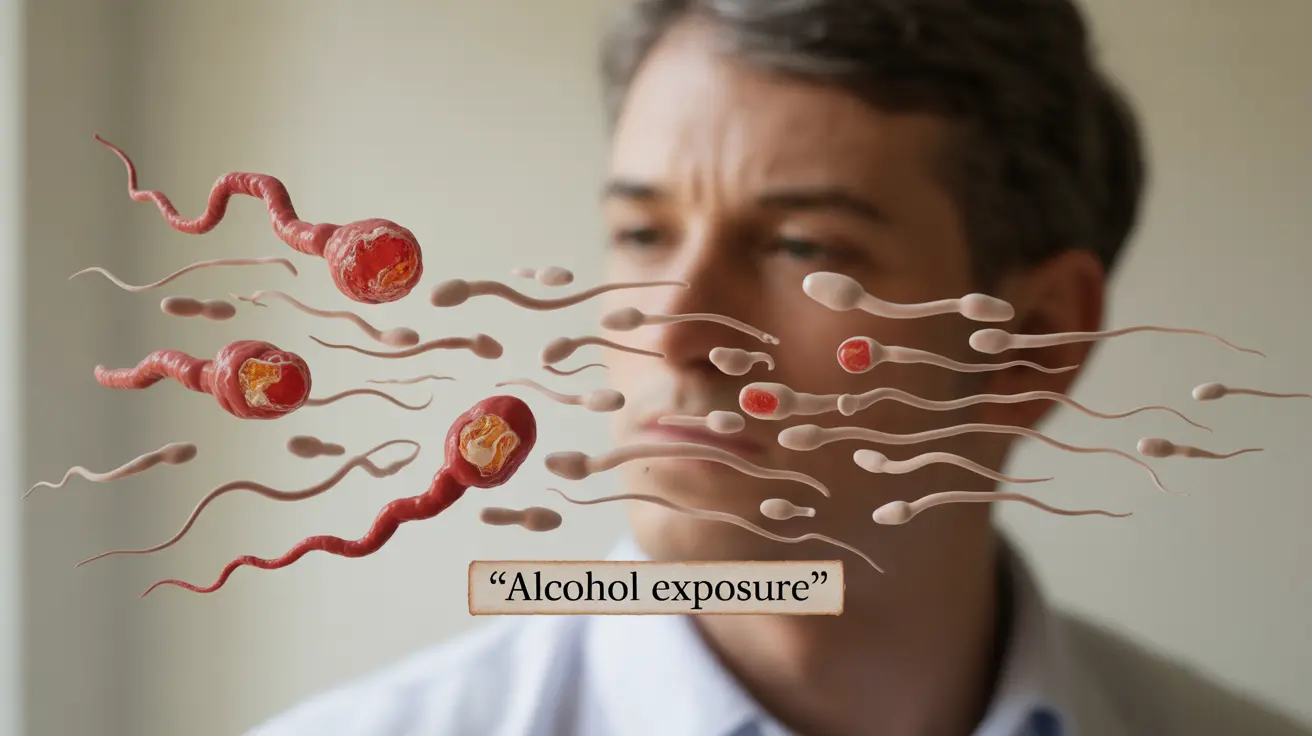For men concerned about their fertility and reproductive health, understanding how alcohol affects sperm production and quality is crucial. While many people wonder if alcohol directly kills sperm cells, the relationship between alcohol consumption and male fertility is complex and involves multiple biological mechanisms.
This comprehensive guide explores the various ways alcohol impacts sperm health, from immediate effects to long-term consequences, and provides evidence-based insights for those trying to conceive or maintain optimal reproductive health.
How Alcohol Affects Sperm Production
Alcohol consumption can significantly impact the body's ability to produce healthy sperm through several mechanisms. The primary effects occur in the testicles, where alcohol can disrupt the delicate process of sperm production and maturation.
Regular alcohol consumption can lead to:
- Reduced testosterone production
- Decreased sperm count
- Altered sperm morphology (shape and structure)
- Impaired sperm motility (movement)
Immediate vs. Long-term Effects
While alcohol doesn't immediately kill all sperm cells upon consumption, it can cause immediate changes in sperm quality. Heavy drinking sessions can temporarily affect sperm production and function for several days afterward.
Long-term alcohol use presents more serious concerns, potentially leading to chronic fertility issues and requiring longer recovery periods to restore normal sperm production.
The Role of Alcohol in Male Fertility
Alcohol affects male fertility through multiple pathways, including hormonal disruption, oxidative stress, and direct cellular damage. These effects can significantly impact a couple's ability to conceive.
Hormonal Impact
Alcohol interferes with the body's hormone production and regulation, particularly affecting:
- Testosterone levels
- Luteinizing hormone
- Follicle-stimulating hormone
- Cortisol production
Oxidative Stress and DNA Damage
Regular alcohol consumption can increase oxidative stress in the body, leading to DNA damage in sperm cells. This damage can affect both fertility and the health of potential offspring.
Recovery and Prevention
The good news is that the effects of alcohol on sperm health can often be reversed through lifestyle changes. The time required for recovery depends on the duration and severity of alcohol use.
Timeline for Improvement
Sperm regeneration typically takes about 74 days. However, noticeable improvements in sperm quality can occur within three months of reducing or eliminating alcohol consumption, combined with other healthy lifestyle changes.
Safe Alcohol Consumption When Trying to Conceive
For couples trying to conceive, moderation is key. While complete abstinence may not be necessary for everyone, limiting alcohol intake can improve fertility outcomes.
Current research suggests that men who are trying to conceive should consider:
- Limiting alcohol to no more than 2 drinks per day
- Having alcohol-free days throughout the week
- Avoiding binge drinking completely
Frequently Asked Questions
Does drinking alcohol immediately kill sperm or affect sperm health over time? While alcohol doesn't immediately kill all sperm cells, it can cause immediate changes in sperm quality. Long-term alcohol use has more significant effects on sperm production and overall reproductive health.
How does heavy alcohol consumption impact male fertility and sperm quality? Heavy alcohol consumption can significantly reduce sperm count, decrease sperm motility, alter sperm morphology, and disrupt hormone production essential for fertility.
Can the negative effects of alcohol on sperm production and hormone levels be reversed? Yes, most negative effects can be reversed by reducing or eliminating alcohol consumption. Recovery typically begins within three months of lifestyle changes, with full sperm regeneration taking about 74 days.
Is moderate alcohol intake safe when trying to conceive, or should it be avoided completely? Moderate alcohol intake (up to 2 drinks per day) may be acceptable when trying to conceive, but reducing consumption or abstaining entirely can improve fertility outcomes.
How does combining alcohol with other substances like marijuana or opioids affect male fertility? Combining alcohol with other substances can compound negative effects on fertility. Multiple substance use can lead to more severe hormone disruption and greater damage to sperm production and quality.




